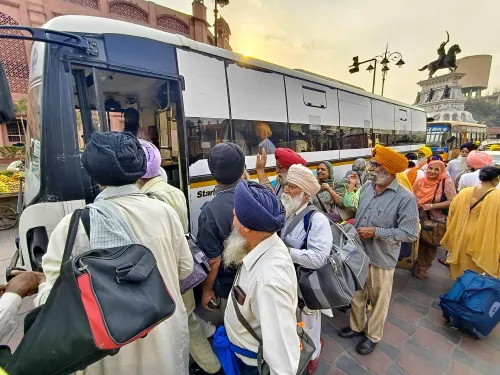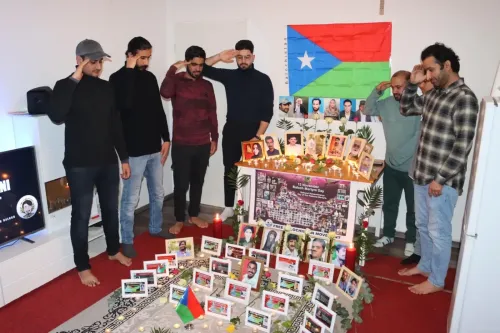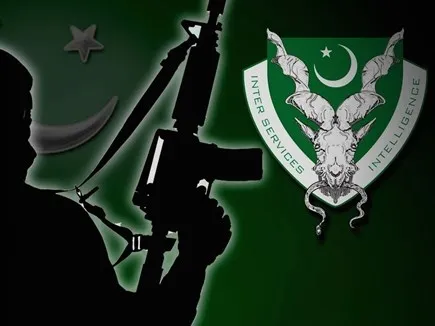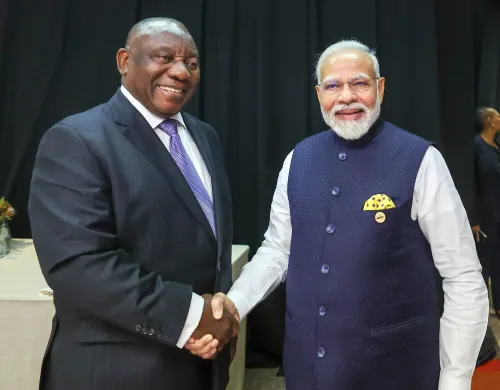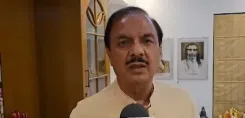Six Fatalities and 28 Injuries Reported Due to New Israeli Airstrikes in Lebanon
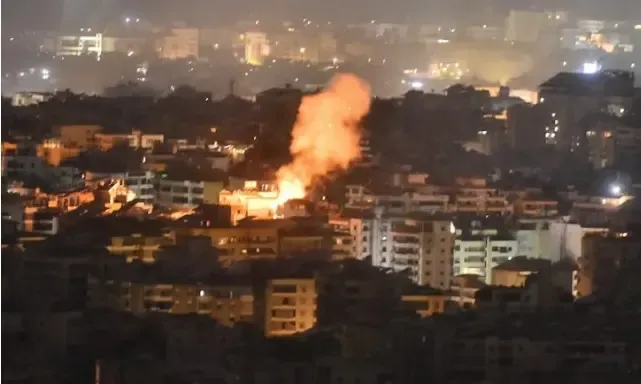
Synopsis
Key Takeaways
- Six individuals killed in latest airstrikes.
- 28 others injured across eastern and southern Lebanon.
- Israeli Air Force launched multiple waves targeting Hezbollah.
- Calls for international intervention to de-escalate tensions.
- Lebanon's government held accountable for actions on its territory.
Beirut/Jerusalem, March 23 (NationPress) A minimum of six individuals lost their lives and 28 others sustained injuries due to new Israeli airstrikes aimed at eastern and southern Lebanon, as reported by the health authorities of Lebanon.
In southern Lebanon, the Israeli airstrikes struck the city of Tyre, along with various valleys and villages, resulting in six deaths and 22 injuries, according to the Public Health Emergency Operations Centre of Lebanon on Saturday evening. The assaults in eastern Lebanon resulted in six injuries.
Additionally, a Lebanese security source informed Xinhua news agency that Israel executed 15 airstrikes thus far on Saturday evening.
The Israel Defense Forces (IDF) stated that the Israeli Air Force initiated a second wave of strikes against what it identified as Hezbollah command centers, infrastructure sites, militant positions, rocket launchers, and a weapons storage facility throughout Lebanon, as reported by Xinhua news agency.
They emphasized that they will "continue to strike as necessary to safeguard Israeli civilians".
Earlier, a statement from the office of the Israeli Defense Minister indicated that Israeli Prime Minister Benjamin Netanyahu and Defense Minister Israel Katz had directed the IDF to initiate a second wave of strikes against numerous "Hezbollah targets" in Lebanon in retaliation for rockets launched into northern Israel on Saturday morning.
"The Lebanese government is accountable for everything occurring on its territory," the statement asserted.
"Israel will not tolerate any threat to its citizens and sovereignty, and will employ every means to ensure the safety of Israeli citizens and communities in the north."
Earlier on Saturday, the Israeli military announced that it intercepted rockets launched from Lebanon towards the northern Israeli town of Metula. No casualties were reported in Israel, according to emergency services in the country.
The initial wave of Israeli attacks occurred on Saturday noon, impacting areas near the villages of Touline, Kfar Melki, Mleeta, and the Wadi al-Hujeir valley in southern Lebanon, as stated by Lebanon's state-owned National News Agency (NNA). It reported that a residential building in Touline was destroyed, resulting in one fatality and three injuries.
Following the strikes, the Israeli military declared that it targeted Hezbollah's infrastructure in Lebanon.
In efforts to mitigate the ongoing escalation, Lebanese Foreign Minister Youssef Rajji engaged in discussions with several regional foreign ministers and officials, as per NNA.
Rajji appealed for pressure on Israel to cease its offensive, de-escalate the situation, and manage the escalating crisis along the southern border.
The United Nations Interim Force in Lebanon (UNIFIL) expressed concern regarding the violence.
"We strongly urge all parties to refrain from actions that could jeopardize the fragile stability," stated UNIFIL's spokesperson Andrea Tenenti, warning that further escalation could have "grave consequences".
UNIFIL indicated that peacekeepers were conducting patrols to ease tensions.
This exchange transpired amid ongoing disputes over a US- and French-mediated ceasefire between Israel and Hezbollah, which took effect on November 27, 2024, halting over a year of hostilities associated with the Gaza conflict.
The truce required an Israeli withdrawal from disputed Lebanese territory; however, Israeli forces continue to occupy five border posts well beyond a February 18 deadline, according to Lebanese officials.

